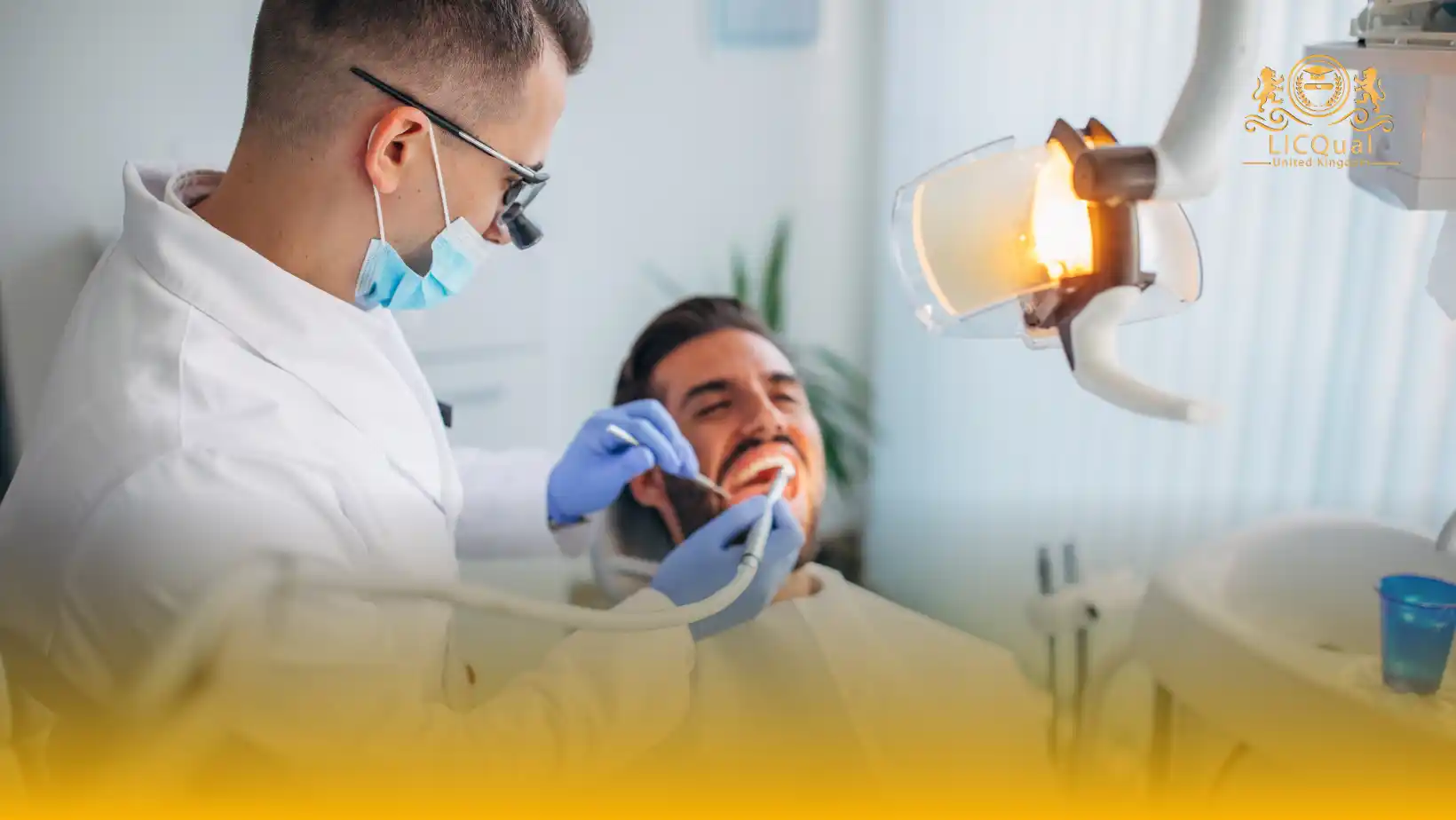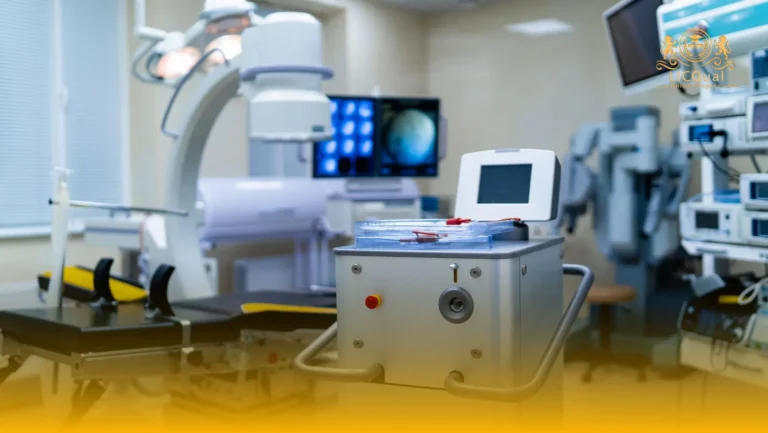The LICQual Level 3 Diploma in Dental Sleep Medicine is a specialized qualification designed for dental and healthcare professionals who wish to expand their expertise in the diagnosis, management, and treatment of sleep-related breathing disorders. With the increasing recognition of the link between oral health and systemic conditions such as obstructive sleep apnoea, this diploma equips learners with advanced knowledge and practical skills to deliver effective patient care.
This qualification is not intended for fresh candidates. It is aimed at professionals who already have experience in dentistry or related healthcare fields and wish to enhance their career prospects, broaden their clinical expertise, and strengthen their Continuing Professional Development (CPD). Learners will explore the pathophysiology of sleep disorders, oral appliance therapies, multidisciplinary care approaches, and the ethical considerations involved in treating patients with sleep-related conditions.
Centres delivering this diploma must ensure the highest standards of training by employing competent and qualified staff with relevant professional expertise in dental sleep medicine and associated disciplines. In addition, centres are required to provide all necessary learning resources, clinical tools, and access to up-to-date research to support effective teaching, practical application, and learner success.
By completing the LICQual Level 3 Diploma in Dental Sleep Medicine, learners will gain specialist knowledge that enables them to deliver enhanced patient outcomes, meet growing healthcare demands, and establish themselves as leaders in this important and evolving field of dentistry. This diploma supports lifelong learning, professional growth, and greater opportunities in advanced dental practice.
Course Overview
Qualification Title
LICQual Level 3 Diploma in Dental Sleep Medicine
Total Units
6
Total Credits
60
GLH
240
Qualification #
LICQ2200667
Qualification Specification
To enroll in the LICQual Level 3 Diploma in Dental Materials, applicants must meet the following criteria:
|
Qualification# |
Unit Title |
Credits |
GLH |
|---|---|---|---|
|
LICQ2200667-1 |
Principles of Dental Sleep Medicine |
10 |
40 |
|
LICQ2200667-2 |
Sleep Disorders and Pathophysiology |
10 |
40 |
|
LICQ2200667-3 |
Diagnosis and Assessment Techniques |
10 |
40 |
|
LICQ2200667-4 |
Oral Appliances and Therapeutic Approaches |
10 |
40 |
|
LICQ2200667-5 |
Multidisciplinary Care and Ethical Practice |
10 |
40 |
|
LICQ2200667-6 |
Clinical Skills, Case Studies, and Professional Development |
10 |
40 |
By the end of this course, learners will be able to:
Unit 1: Principles of Dental Sleep Medicine
- Understand the role of dentistry in the management of sleep-related breathing disorders.
- Explain the relationship between oral health, airway function, and systemic health.
- Analyse the importance of early detection and intervention in sleep medicine.
- Apply the principles of patient-centred care within dental sleep practice.
Unit 2: Sleep Disorders and Pathophysiology
- Identify the major types of sleep disorders including obstructive sleep apnoea, insomnia, and bruxism.
- Understand the pathophysiology and health consequences of untreated sleep disorders.
- Evaluate the impact of sleep-related conditions on oral and overall health.
- Demonstrate awareness of risk factors and comorbidities associated with sleep disorders.
Unit 3: Diagnosis and Assessment Techniques
- Apply clinical and dental assessment methods to evaluate patients with sleep-related conditions.
- Interpret findings from diagnostic tools such as sleep studies and questionnaires.
- Recognise the limitations of dental assessment in diagnosing complex sleep disorders.
- Develop appropriate referral pathways for multidisciplinary evaluation.
Unit 4: Oral Appliances and Therapeutic Approaches
- Understand the principles, design, and function of oral appliances in sleep medicine.
- Evaluate the effectiveness and limitations of oral appliance therapy in managing obstructive sleep apnoea and related conditions.
- Apply knowledge of appliance selection, fitting, and adjustment to clinical scenarios.
- Monitor and assess patient outcomes to ensure safe and effective treatment.
Unit 5: Multidisciplinary Care and Ethical Practice
- Recognise the importance of collaboration with medical specialists such as sleep physicians, ENT surgeons, and respiratory therapists.
- Apply ethical principles and legal frameworks relevant to dental sleep medicine.
- Demonstrate effective communication with patients and healthcare teams to support informed decision-making.
- Evaluate professional responsibilities in providing safe and ethical care.
Unit 6: Clinical Skills, Case Studies, and Professional Development
- Apply theoretical knowledge to real-world case studies in dental sleep medicine.
- Develop clinical decision-making skills in managing patients with sleep-related conditions.
- Reflect on personal practice to identify strengths and areas for improvement.
- Demonstrate commitment to Continuing Professional Development (CPD) in dental sleep medicine.
The LICQual Level 3 Diploma in Dental Sleep Medicine is designed for dentists, dental specialists, and oral healthcare professionals who want to expand their expertise in managing sleep-related disorders through dental interventions. This program is ideal for those seeking advanced clinical knowledge, practical skills, and internationally recognized credentials in dental sleep medicine. Whether you are a practicing dentist, a recent graduate, or a clinician exploring sleep dentistry, this diploma equips you to provide safe, evidence-based, and patient-centered care for individuals with sleep-disordered breathing conditions.
1. Practicing Dentists Seeking Specialization in Dental Sleep Medicine
- Designed for licensed dentists aiming to expand their practice into sleep dentistry.
- Provides training in oral appliance therapy, patient assessment, and sleep disorder management.
- Enhances knowledge of snoring, obstructive sleep apnea, and treatment protocols.
- Strengthens decision-making for selecting and customizing oral devices.
- Offers internationally recognized credentials to boost professional credibility.
2. Dental Specialists
- Ideal for orthodontists, prosthodontists, and restorative dentists seeking sleep medicine expertise.
- Focuses on integrating sleep therapy with existing dental practice.
- Builds advanced skills in oral device fabrication and adjustment.
- Enhances understanding of multidisciplinary approaches in sleep-disordered patients.
- Prepares specialists for complex clinical cases in dental sleep therapy.
3. Early-Career Dental Graduates
- Suitable for recent BDS, DDS, or equivalent graduates seeking specialization.
- Provides foundational knowledge in dental sleep medicine.
- Prepares learners for advanced clinical roles or postgraduate studies.
- Encourages evidence-based practice and patient-centered approaches.
- Increases employability in private and hospital-based dental sleep clinics.
4. International Dental Professionals
- Tailored for practitioners seeking UK-accredited dental sleep medicine qualifications.
- Offers flexible online learning accessible worldwide.
- Aligns with international standards for sleep dentistry and oral appliance therapy.
- Enhances global recognition and career mobility.
- Provides practical insights into modern clinical techniques and patient management.
5. Dental Educators and Academic Professionals
- Designed for lecturers and trainers updating curriculum on dental sleep medicine.
- Incorporates evidence-based techniques for teaching oral appliance therapy.
- Supports academic leadership and research in dental sleep medicine.
- Enhances credibility as an expert in patient-centered sleep care education.
- Provides opportunities for publications and case study contributions.
6. Clinic Owners and Practice Managers
- Helps dental practice owners expand services into sleep-disordered patient care.
- Provides strategies for managing oral appliance therapy within the clinic.
- Strengthens team supervision and workflow efficiency.
- Enhances patient satisfaction through evidence-based treatment protocols.
- Promotes practice growth by offering specialized sleep dentistry services.
7. Career-Oriented Dental Professionals Seeking Recognition
- Ideal for professionals aiming for internationally recognized dental sleep medicine credentials.
- Enhances clinical expertise and professional credibility in managing sleep disorders.
- Opens pathways to advanced clinical, academic, or consultancy roles globally.
- Provides a career-boosting foundation in specialized dental sleep therapy.
- Equips professionals to excel in multidisciplinary dental and medical environments.
Centres intending to deliver the LICQual Level 3 Diploma in Dental Sleep Medicine must meet specific requirements to ensure high-quality delivery, learner success, and alignment with professional standards in dentistry and healthcare. These requirements help guarantee that learners receive the knowledge, skills, and practical training needed to excel in this specialised field.
- Qualified and Experienced Staff: Centres must employ trainers, assessors, and internal quality assurers with recognised qualifications and substantial professional experience in dentistry, sleep medicine, or related healthcare fields.
- Access to Learning Resources: Comprehensive and up-to-date study materials, including textbooks, journals, research papers, and digital resources, must be provided to support learner development.
- Clinical and Simulation Facilities: Centres must ensure learners have access to suitable facilities, including dental equipment, oral appliances, and diagnostic tools to practise and apply clinical skills.
- Robust Quality Assurance Systems: Internal quality assurance and verification procedures must be in place to ensure consistency, fairness, and compliance with LICQual standards.
- Learner Support and Guidance: Centres must provide academic and pastoral support, including access to tutors, mentors, and guidance services to help learners achieve success.
- Commitment to CPD for Staff: Trainers and assessors should actively engage in Continuing Professional Development (CPD) to ensure delivery remains current with the latest research and best practices in dental sleep medicine.
- Technology and Online Learning Access: Centres offering blended or online delivery should provide reliable access to virtual learning platforms, interactive tools, and digital assessments.
- Compliance with Ethical and Professional Standards: All training and assessment must be delivered in line with ethical guidelines, professional codes of conduct, and legal regulations in dentistry and healthcare.
By meeting these requirements, centres will be able to deliver a high-quality qualification that equips learners with the specialist skills needed to succeed in the evolving field of dental sleep medicine.
Assessment and Verification
All units within this qualification are subject to internal assessment by the approved centre and external verification by LICQual. The qualification follows a criterion-referenced assessment approach, ensuring that learners meet all specified learning outcomes.
To achieve a ‘Pass’ in any unit, learners must provide valid, sufficient, and authentic evidence demonstrating their attainment of all learning outcomes and compliance with the prescribed assessment criteria. The Assessor is responsible for evaluating the evidence and determining whether the learner has successfully met the required standards.
Assessors must maintain a clear and comprehensive audit trail, documenting the basis for their assessment decisions to ensure transparency, consistency, and compliance with quality assurance requirements.







